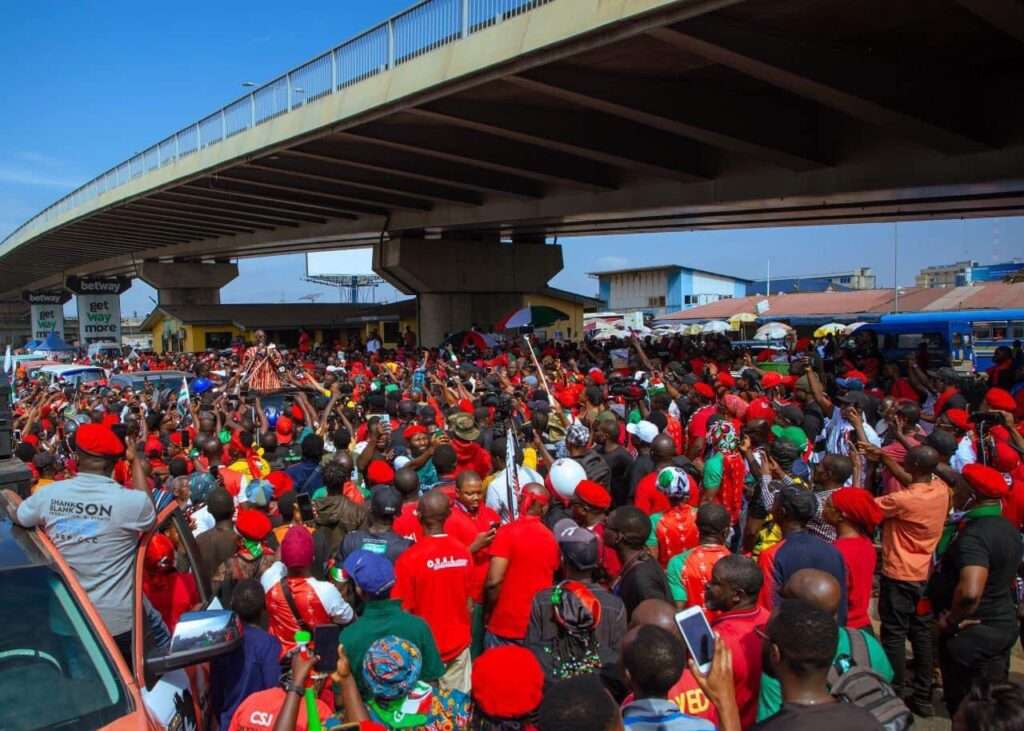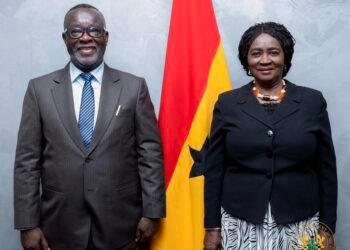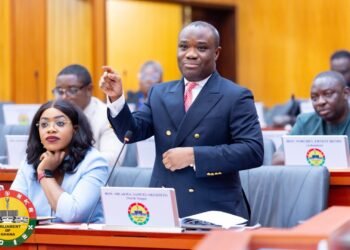Dr. Emmanuel Akwetey, Executive Director of the Institute for Democratic Governance (IDEG), has highlighted a historical precedent to address concerns raised by the opposition National Democratic Congress (NDC) regarding Ghana’s voters’ register.
Dr. Akwetey pointed to a similar situation that occurred in 2008 when the NDC, while in opposition, voiced suspicions about an inflated voter roll, particularly in the Ashanti Region.
“There has been a precedent under Dr. Afari-Gyan, and what he did eventually was to invite experts from outside the Commission to go through the register.
“It’s not something they haven’t done before; there is a precedent, and the Commission taps into a wealth of strategies and approaches to getting its work done to the cheers of everybody.”
Dr. Emmanuel Akwetey, Executive Director of the Institute for Democratic Governance (IDEG),
This process involved a variety of stakeholders, including independent auditors and state institutions like the Audit Service, to ensure transparency.
The audit proved to be a crucial step in reducing tensions and mistrust between the major political parties, ultimately facilitating a peaceful election.
Dr. Akwetey suggested that the current EC should consider adopting a similar approach to resolve the ongoing dispute.
Dr. Akwetey’s reference to the 2008 elections is significant, as it highlighted a moment in Ghana’s electoral history where a similar challenge was resolved through dialogue and independent scrutiny.
At the time, the NDC, also in opposition, accused the EC of maintaining a bloated voter roll, particularly in Kumasi, one of Ghana’s major cities.
Calls for a Third-Party Intervention

In light of the NDC’s current concerns over the voters’ register, particularly allegations of inaccuracies and potential voter suppression, Dr. Akwetey called for a similar third-party intervention. He believes a forensic audit conducted by an independent body could restore confidence in the electoral process.
“Where mistrust is so deep and they cannot bilaterally resolve the issue, they should get a third party,” Dr. Akwetey emphasized.
Dr. Akwetey’s call for a third-party intervention resonates with many who are concerned about the deep mistrust between the EC and the opposition.
“When the independent group came out with the results, both [parties] looked forward,” he noted, stressing the value of having neutral parties involved in resolving such disputes.
The NDC has been particularly vocal in its demands for a thorough forensic audit of the voters’ register ahead of the upcoming elections. The party has staged a nationwide protest, dubbed “Enough is Enough”, to pressure the EC into heeding their call.
Protesters have expressed frustration with the EC’s refusal to conduct the audit, which the NDC believes is critical for ensuring a transparent and fair election.
The NDC’s demonstrations reflect the party’s dissatisfaction with the EC’s management of the voters’ register.
In addition to the forensic audit, the NDC is calling for broader measures to “sanitize” the voters’ register, ensuring that it accurately reflects the eligible voting population. The party argues that failing to address these concerns could undermine the integrity of the upcoming elections.
The protests have gained significant traction, with large crowds taking to the streets in support of the NDC’s demands. Party officials have emphasized the importance of resolving the issue swiftly, warning that the credibility of the entire electoral process could be at risk if the EC does not take action.
In the coming weeks, it will be critical for all parties involved to find common ground and work together to ensure that the upcoming elections are free, fair, and transparent. For now, the NDC’s protests continue, with the party and its supporters eagerly awaiting the EC’s response to their demands.
READ ALSO: Amphitheater Construction Projects: Challenges, Impact of Funding Shortages























